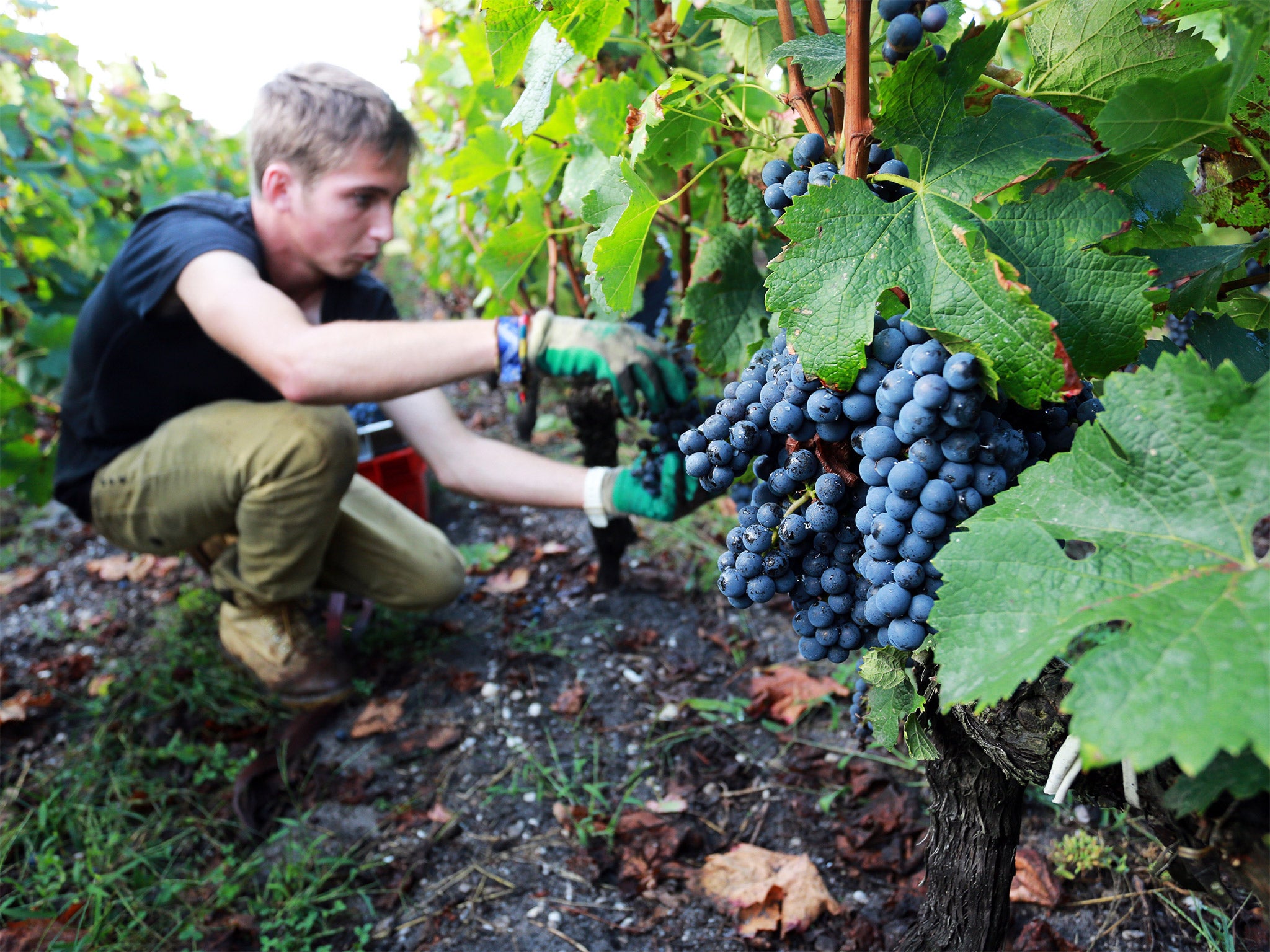Bumper French wine grape harvest clouded by threat of wood decay
Disease which rots vines now affects 12 per cent of vineyards and is spreading fast

The French grape harvest has produced a bumper crop for 2014 after two years of adverse weather conditions.
But the smiles could be wiped off winegrowers’ faces if wood decay disease, which now affects 12 per cent of vines in all of France’s wine-growing regions, continues its relentless march across the country.
The spread of the disease by three types of fungi which attack the vines has so alarmed experts that it is being compared to phylloxera, the deadly disease which decimated French vineyards at the end of the 19th century.
“There’s no miracle solution in sight,” said specialist Olivier Yobregat from the south-western branch of the French Wine Institute, located in Lisle-sur-Tarn. “Winegrowers want answers, but this disease is very complex. A lot of the research being done will only bring results in the long term,” he said.
Until then, following the withdrawal of the only effective treatment, sodium arsenite pesticide which was withdrawn in 2001 because of its toxicity, “there’s nothing to be done”.
The three fungi, including one with the ominous name black dead arm, are not a new phenomenon and have been in the soil since antiquity. They are present in all the Mediterranean countries as well as the US and Canada. One, eutypa lata, has a simple structure and can be kept under control by protecting pruning wounds on the vine.
However, the other two, black dead arm and esca, are more complex and prolific. The vines can rot and die within seven or eight years of being infected.
According to Mr Yobregat, the vineyards of western France – including the Loire valley and the Bordeaux region – are more susceptible to the fungi, probably because of the humidity. Also some grapes are more sensitive, such as the cabernet sauvignon used in claret, and the sauvignon blanc planted in Alsace.
The disease was kept at bay by sodium arsenite for more than a century. But in the last two years wood decay has returned with a vengeance.
“The grape harvest in the last two years was poor because of a lot of damage from storms and bad weather. Now we have a good harvest, but this is the second year we have had very strong symptoms of the wood decay disease,” said Mr Yobregat.
“The wood decay disease affecting 12 per cent of the vines means a loss of income of a billion euros for the sector,” the president of the French Institute of Wine, Bernard Nadal, told Le Figaro.
France’s wine industry employs 600,000 people, and according to the Agriculture Ministry this year’s grape harvest will produce 46 million hectolitres of wine. That’s two per cent higher than the average five-yearly yield, and reflects a bumper harvest everywhere except in Languedoc Roussillon, where heavy rain pounded the vines at the end of September.
Mr Yobregat rejected comparisons between the wood decay disease and phylloxera which, he stressed, had been a “new” disease imported from America, which had an “explosive” effect on unprotected vines.
French winegrowers face other new invasive pests thanks to globalisation, he added. The latest is the Suzuki fruit fly from Asia, which arrived in France and began destroying strawberries before affecting grapes. “In just one year, they can do a lot of damage,” he said.
Research on tackling the deadly wood decay disease is focused on the genetic development of vines which are more resistant to the fungi, and finding out why some strains are less likely to be affected. Researchers are also studying how sodium arsenite worked, in case its mechanisms can be adapted for future use.
Subscribe to Independent Premium to bookmark this article
Want to bookmark your favourite articles and stories to read or reference later? Start your Independent Premium subscription today.

Join our commenting forum
Join thought-provoking conversations, follow other Independent readers and see their replies